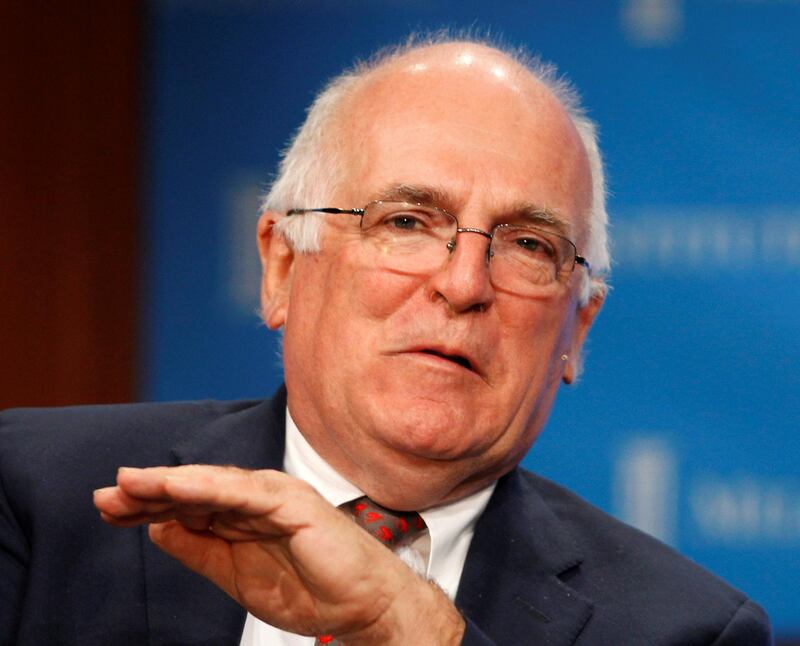Two high-ranking former members of Britain’s security community have warned that prime minister Theresa May’s preferred withdrawal agreement from the European Union “threatens national security” and have called on MPs to block the deal.
Sir Richard Dearlove, head of MI6 between 1999 and 2004, and the former Chief of Defence Staff Lord Guthrie wrote to chairmen of local Conservative Associations, telling them that Mrs May’s deal was “bad” and going on to accuse the EU of extorting a £39 billion “ransom” from the UK.
The pair tell the chairmen that “your MP will shortly be called upon to support the Prime Minister's withdrawal agreement.”
_______________
Read more:
Brexit on the brink as Theresa May resists demand for plan B
_______________
“As a former chief of the secret intelligence service, with my colleague Lord Guthrie, who served as chief of the defence staff shortly before I was in charge of MI6, we are taking the unprecedented step of writing to all Conservative Party Chairmen to advise and to warn you that this withdrawal agreement, if not defeated, will threaten the national security of the country in fundamental ways. Please ensure that your MP does not vote for this bad agreement.”
They warn that the deal “threatens to change our national security policy by binding us into new sets of EU-controlled relationships”.
“Buried in the agreement is the offer of a ‘new, deep and special relationship’ with the EU in defence, security and intelligence which cuts across the three fundamentals of our national security policy: membership of NATO, our close bilateral defence and intelligence relationship with the USA, and the Five Eyes intelligence alliance.”
“The first duty of the state, above trade, is the security of its citizens,” they add. “The Withdrawal Agreement abrogates this fundamental contract and would place control of aspects of our national security in foreign hands. Please ensure that your MP votes against this bad agreement and supports a sovereign Brexit on WTO rules, without payment of ransom.”
The claims in the letter were immediately dismissed by Downing Street. A spokesman said: “The claim is completely wrong. Nothing in the Withdrawal Agreement or our Political Declaration cuts across Nato, our defence or intelligence relationship with the USA or with the Five Eyes alliance.
“In fact, our deal delivers the broadest security agreement the EU has with any of its partners.”
Lord Ricketts, a former National Security Adviser, also rubbished the letter: “The claims … are nonsense. Our intelligence links with the US have nothing to do with the EU and w’d be unaffected by the deal. Law enforcement cooperation is in our national interest. If we wanted to join an EU military mission that would be our sovereign choice.”
However, the letter was seized upon by Brexiteers, with the former cabinet minister Owen Paterson referring to it as a “devastating warning”.
Labour’s shadow Cabinet Office minister Jo Platt said that the PM’s “flimsy negotiations with regards to our national security aren't good enough, it's something we need concrete reassurances on and we haven't got that with this deal.”
But Liberal Democrat MP Tom Brake said: “It’s astonishing that someone of Sir Richard Dearlove’s experience can make the case that cutting our ties with the EU would enhance security cooperation. It clearly wouldn’t.
“We've already lost access to the Galileo programme and police departments around the country have time and again warned about the threat Brexit poses to their ability to stop terrorists,” Mr Brake said.
“Then again,” he added, “this is the guy who was head of intelligence when we went into Iraq.”







